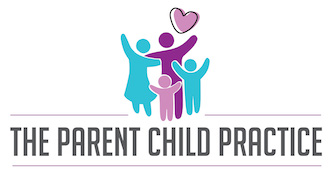In light of the recent tragedy which occurred at the movie theater in Aurora, Colorado, I decided to share some valuable tips for helping your child(ren) or other children cope after experiencing a tragedy or crisis event. It is important that as adults we are equipped with the necessary skills to make our children feel safe in, what can sometimes be, a scary and dangerous world.
1) Monitor the news.
When a significant tragedy or a crisis occurs, the news and television programs play endless television clips related to the tragedy. Although as an adult you may want to stay up to date with the recent developments surrounding the crisis, it is important to remember that children have difficulty processing the information presented on news programs. Young children may have difficulty separating the information presented on the news from their personal reality. If children have continuous exposure to this kind of information it may serve as a reinforcement for possible anxiety.
2) Share information with your children based on their developmental level.
Children often ask many questions when a tragedy or crisis occurs. It is fine to answer your child's questions; however, make sure that the responses reflect their developmental level. For example, you would not explain the recent shooting in Colorado the same way to a 5-year-old and a 14-year-old. You may tell a 5-year-old that something sad happened in Colorado and we need to keep the people in that state in our thoughts and/or prayers (if the family is spiritual). However, you may tell a 14-year-old some details of the Colorado shooting and discuss the ramifications of the tragedy on the families and friends of the victims in Colorado. It is important to give brief responses to children's questions and allow them to ask questions as they feel comfortable.
3) Contribute to the crisis in a positive way.
During times of tragedy it is common for people to come together and support one another. As a parent/caregiver you can teach your children the gift of altruism by donating your time (if applicable) in the aftermath of a tragedy or donating your money to support the victims' families. Whatever you decide to do to support a tragic situation, make sure you discuss your ideas and plans with your children so that you can teach them that even in times of tragedy we can have positive experiences and feelings.
4) Monitor your own feelings.
Children often look to their parents when deciding how to respond to crisis events. Parents serve as thermometers for how they should feel and respond to an event. Therefore, it is extremely important that you take care of yourself emotionally during these times. If you find that you are experiencing strong, negative emotions surrounding a tragedy it is important that you seek professional help from a mental health provider to process your emotions.
5) Make the child(ren) feel safe.
When a tragic situation occurs it is extremely important that parents continue with their routines and offer them a sense of normalcy. Parents should continue to take their children to their after-school activities, school, and they should continue involvement in their routine family activities.
Related articles
Explaining tragedy to your children is difficult but necessary
Helping children cope with tragedy after mass shooting (fox6now.com)
How to Comfort Your Child's Fears and Sorrow Concerning Colorado's Tragedy (psychologytoday.com)



